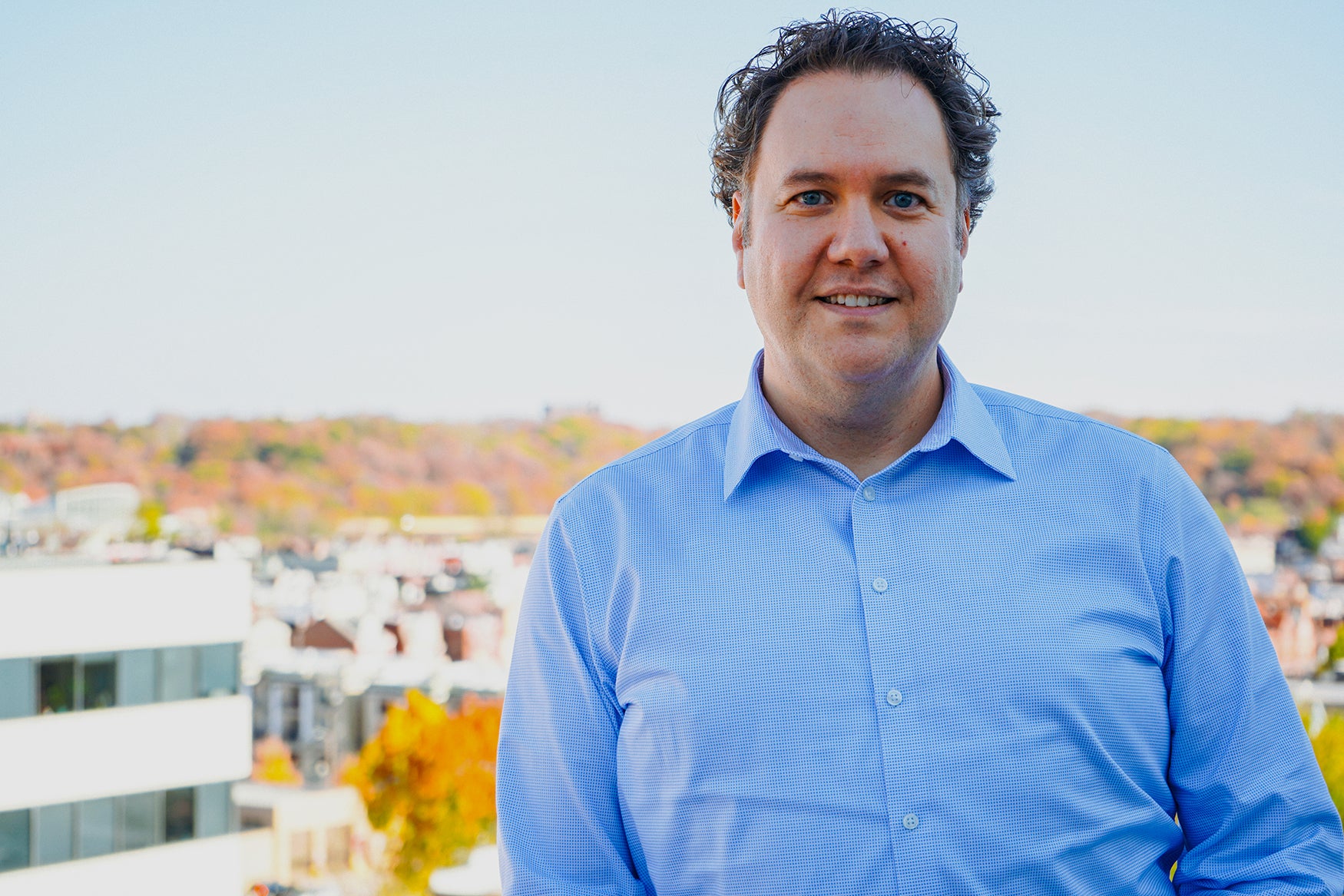
Joseph C. Ayoob, associate professor of computational and systems biology, School of Medicine, spent more than a decade teaching an advanced, hands-on, experimental wet-lab course, encouraging students to become active agents in their own education. His dynamic style and enthusiasm for teaching was bested only by his passion to mentor and support his students.
Today, Ayoob—aka Dr. booyA—fills a unique role in the School of Medicine. He focuses on designing and implementing innovative research and training efforts for trainees at all levels—from high school to undergraduate and graduate students, as well as faculty.
His playful moniker evolved over the past 15 years as his coworkers and students became caught up in Ayoob’s enthusiasm for mentoring the next generation of computational biologists. He claims “booyA” is simply his name spelled backward, but some maintain it’s an example of his unconventional—and fun—approach to motivating and inspiring others.
“I am a first-generation high school graduate,” says Ayoob. “My mother grew up on a farm in Lebanon and my father quit school in the eighth grade. Yet education was very important to them.”
Ayoob credits professors Jean and Joseph Sanger for introducing him to science as an undergraduate student at the University of Pennsylvania. They awarded him with a work-study program and the opportunity to engage with dedicated researchers and scientists. He went on to connect with other mentors throughout his graduate education at Johns Hopkins University. During his PhD program there, he himself became a mentor—a role that continues to drive him, personally and professionally.
“The amazing mentors that I have been fortunate to have at every stage of my career have played essential roles in my development as a scientist, educator and, in turn, mentor,” continues Ayoob. “Because of all they have given me, I feel compelled to help others experience the many benefits of successful, productive and fulfilling mentor–mentee relationships.
In 2010, Ayoob was charged with developing a National Science Foundation (NSF)-funded Research Experiences for Undergraduates (REU) program called Training and Experimentation in Computational Biology. The following year, with colleagues from the Department of Biomedical Informatics and as a part of the UPMC Hillman Cancer Center Academy, he cofounded a computationally focused, tailored, research and enrichment site within this academy that serves high school students primarily from underrepresented and disadvantaged backgrounds.
Both the REU and Hillman Academy programs are still fully funded, and their success has led Ayoob to expand his focus to prepare doctoral-level students for success in their academic programs as well as their pursuits after graduation.
Through an innovative collaboration with Carnegie Mellon University, Ayoob created a professional development series for students in the joint PhD program in computational biology called the MetaSchool. These classes align with the graduate training and tackle topics such as “winning” graduate school, grant writing, presentation and communication skills, and ways to compete in both the academic and corporate job markets.
Ayoob serves as a faculty fellow of the University of Pittsburgh Center for Mentoring, a principal/master facilitator of both the evidence-based Entering Mentoring Curriculum (mentor training) and Entering Research Curriculum (mentee training) from the Center for the Improvement of Mentored Experiences in Research.
“Recently, both the National Institutes of Health and NSF have been rolling out requirements for the support of mentors for any graduate or postdoctoral program,” notes Ayoob. “We’re pleased to say that we have been ahead of the curve when it comes to supporting mentors and mentees and look forward to continuing to develop best practices and meet an even greater demand in this important area of professional development.”
